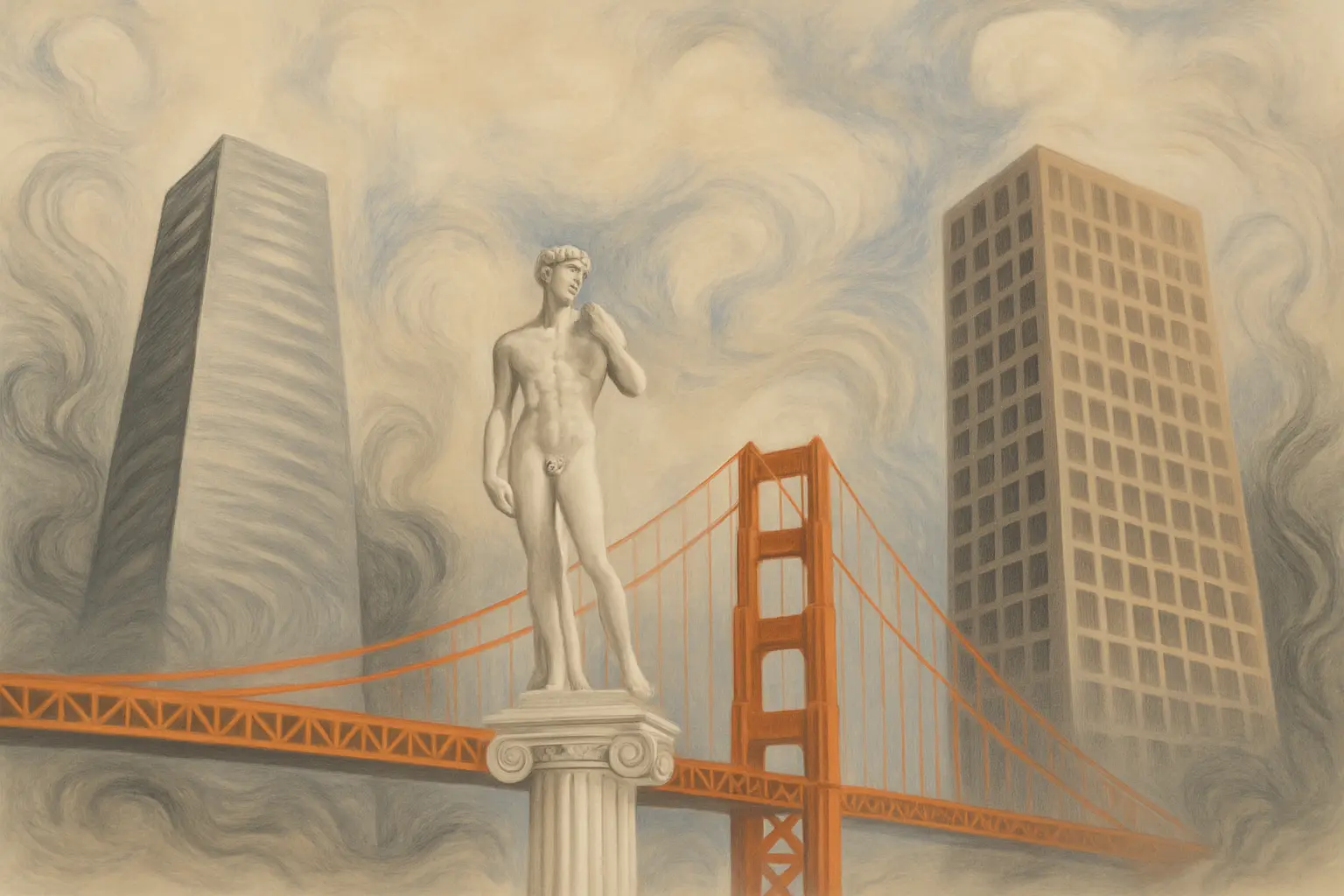cultural architects and the arbitrers of taste
in 2011, software was gospel. code was the highest form of creation. if you could write it, you were untouchable. silicon valley was a cathedral, and y combinator crowned the high priests. build the software, raise the capital, scale it fast enough, and you could bend industries to your will.
but something changed.
fast forward to today, and software is everywhere—cheap, abundant, almost boring. ai walked in and kicked the door wide open. anyone with a browser and a prompt can summon code. the secret spells have become autocomplete suggestions.

software still eats the world, but taste decides who gets to serve the meal.
the markets being served today aren’t just markets — they’re cultural movements. founders used to pitch uptime and latency; now they pitch vibes. design, brand, experience, story, community — the full stack of human emotion.
steve jobs didn’t just sell phones. he sold the feeling of being someone who “gets it.” elon musk didn’t just sell cars. he sold the promise of being part of the future, even if it’s running late.
the competition isn’t other startups anymore. it’s the influencers with distribution pipelines bigger than any seed-stage founder could dream of. it’s the celebrities who understand culture better than your entire product team.
and this isn’t just a b2c story. it’s everywhere. b2b? same thing. the suits want good dashboards, sure — but they also want something that doesn’t feel like a punishment to open. open your inbox — even enterprise tools have stopped writing like they’re talking to procurement departments. they’re talking to humans now.
taste is no longer a luxury. it’s the invisible hand pulling products into the spotlight.
but what even is taste?
the dictionary will tell you it’s about recognizing “good” quality. sounds clinical, doesn’t it? but in the wild, taste isn’t clinical — it’s confrontational. it’s opinion. it’s identity on display. it’s the line between “this is who i am” and “this is who i’m not.”
taste lives at the messy intersection of personal preference, cultural standards, and the desperate human need to be seen. and that last part — attention — that’s where things really heat up.
but here’s the twist: no one actually owns the standard. sure, taste feels personal, but it’s always dialed in against the backdrop of the room you’re standing in. silicon valley used to be that room. now it’s instagram. or tiktok. or some discord community you’ll never be invited to.
products aren’t just tools anymore; they’re personal billboards. wearing your beliefs, your ambitions, your tribe. every app you use, every device you carry — it’s all telling a story about you.
and if products are art now, the new power players aren’t just technical founders. they’re artists, designers, creators. people who don’t write code but write culture.
so the real questions start to bubble up: who controls the taste? who’s the new gatekeeper? will cities like san francisco keep writing the playbook, or will it be seoul, lagos, or some small collective in lisbon?
no one owns taste. but that won’t stop a lot of people from trying.
taste doesn’t replace utility, it completes it. you can’t ship vapor. but you can’t ship steel pipes and expect people to call it architecture either. this is where it gets uncomfortable. because most people think they have taste. they don’t. taste isn’t an aesthetic filter you slap on after the build. it’s upstream. it’s how you decide what not to build, which hill not to die on, which feature to leave buried.
and the question that keeps founders and investors awake at night? can this even be measured? can a dashboard show you taste?
maybe that’s the real split. taste knows taste. metrics chase it from a few quarters behind.
the game is changing. founders aren’t just product builders anymore; they’re cultural architects. and vcs? they’re not just capital allocators. they’re betting on who can read the undercurrent of culture before it surfaces.
some will fight this. try to wait it out. swear that tech will always win on merit alone.
they’ll lose.
because in a world where anyone can create anything, what you create isn’t the question.
it’s why you created it.
and that? that’s all taste.